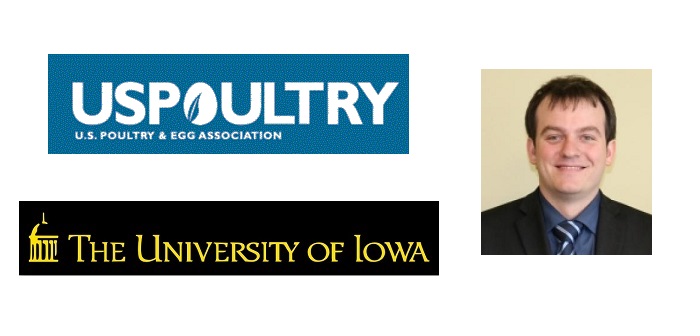Researchers at the University of Iowa (UI) have started work on a gasification project which they hope will enable farmers to kill the avian flu virus in culled poultry and manure, rendering both items safe and potentially releasing them for future use as fertilizer.
The project, which is being funded by the US Poultry & Egg Association (USPOULTRY) as part of a new $275,000 research focus, is being led by Dr Albert Ratner, associate professor of mechanical engineering at UI.
“The problem we’re attempting to solve links back to the fact that when the last avian flu outbreak hit the Iowa poultry industry, around six million birds had to be culled and disposed of,” he told Poultrynews.
“What happened, as a result, is that six million carcases were wrapped in plastic and buried in the ground, a solution which is neither particularly hygienic or necessarily virus secure.
“In addition, if you think disposing of six million virus-infected birds is a problem, how would the industry cope with a larger outbreak in the future, maybe involving as many as 60 million birds?”
In seeking to answer that question, the research team at UI is working with a test gasification unit, which they’ve already built, to see if it is capable of killing the avian flu virus in chicken and manure, either by passing the infected items through a heat chamber, or by feeding them as fuel into the gasification unit itself.
“The heat chamber solution is our preferred option,” said Dr Ratner (pictured above). “This would be easier to manage and a quicker process than actually feeding chicken and manure into the unit itself.”
Being confident that raising the heat chamber temperature to a minimum of 150 degrees Fahrenheit, sufficient to kill the virus, will not be a problem, he added that the virus-clean chicken and manure produced by the process would then be available for farmers to convert into fertilizer, without any future health or virus risks.
Commissioned two months ago, the project is expected to take 18 months from now to complete. Provided the results are successful at the end of that time, it’s envisaged that mobile gasification units, each capable of treating five million chicken in two or three weeks, could be located across poultry farming areas for use as and when an outbreak occurs.
“We’re pretty excited about this work,” said Dr Ratner. “I believe we can produce a good solution for the poultry industry which will not only be feasible and effective in dealing with the disposal problems we have a present but which will also be far less expensive than the burial or large scale incineration options which exist today.”


